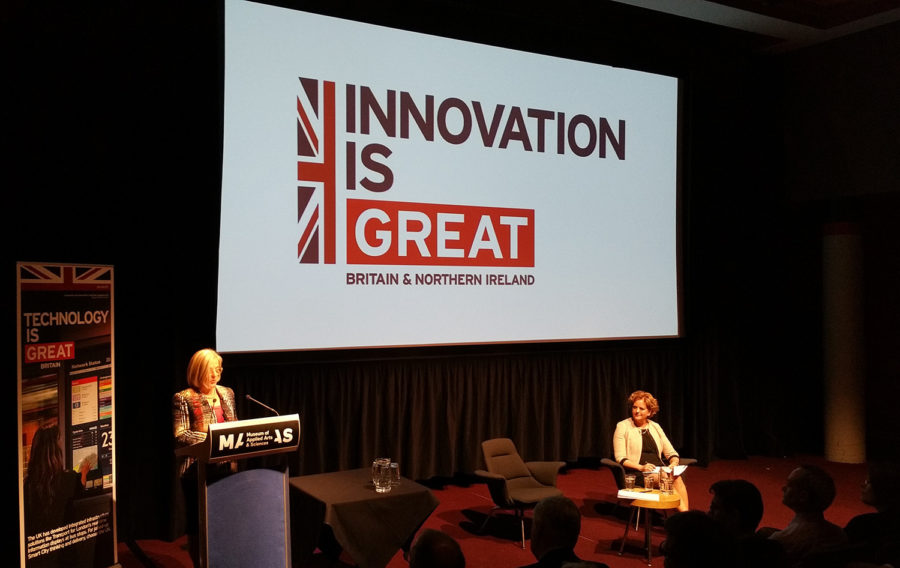It’s been a busy couple of months since I joined the British High Commission as part of the UK Science and Innovation Network. In a short space of time, I’ve worked on topics including antimicrobial resistance, genomics, clean energy and space. I’ve attended a conference on innovation in agriculture, visited a miniature satellite, and helped judge a school competition on climate change communication.
By far the highlight so far has been attending the High Commission’s annual Magna Carta lecture. Now in its 12th year, the lecture series features high-profile Australian and British speakers discussing themes inspired by the Charter.
As part of the High Commission’s Year of Innovation, the 2016 Magna Carta lecture was on the theme of women in innovation. It may seem an unusual topic for a lecture series inspired by a document written 801 years ago, by men, on a parchment made from a bit of sheepskin. Yet, as High Commissioner Menna Rawlings pointed out, the Magna Carta was itself an innovation. It established the principle that nobody is above the law – not even the king – and it led to many of the rights and freedoms we enjoy today.
This year’s guest speaker was Ms Lucy Turnbull AO; a lawyer, author and former lord mayor of Sydney, and currently chair of the Greater Sydney Commission, which oversees planning and development in Sydney. As the wife of Prime Minister Malcolm Turnbull, she has a high profile in civic life and has been a champion for gender equality.
Lucy’s speech focused on smart cities and how they are shaped by female-friendly or ‘people-friendly’ characteristics. It was a fitting subject given that the UK and Australia have worked together so much on cities. Australia has recently introduced a policy of ‘city deals’ based on the UK model, and in her speech Lucy highlighted several examples of projects in London featuring Australian owners or builders, including the King’s Cross railway station redevelopment.
Aside from the fascinating lecture, it was great to meet so many people who are passionate about innovation. The audience included high-profile guests from the academic, public and business sectors, including some leading women entrepreneurs. They needed little prompting to tweet up a storm, making #MagnaCarta2016 the top trending topic on Twitter in Australia – a first for a High Commission event!
A Q&A session after the lecture included some interesting questions from the audience and the general public via Twitter, and we heard a great anecdote from Lucy about what happened when the PM got a drone for Christmas. There was also a very positive discussion about how to encourage women to study STEM subjects. As a non-scientist who has ended up working in science policy, this is a subject that’s close to my heart.
A personal highlight of the evening was meeting Professor Nalini Joshi, a leading Australian mathematician and passionate advocate for women in STEM. When I explained to Nalini how I wish I had been encouraged to pursue STEM subjects at school, she offered to enrol me in a science course on the spot. For now, I think I have enough on my plate – but I’m pleased to have the option. It’s nice to think that even after 801 years, the Magna Carta is still opening up new opportunities, and in ways that its creators would never have imagined.
The 2016 Magna Carta lecture is available to watch online via Australian public affairs channel A-PAC.

